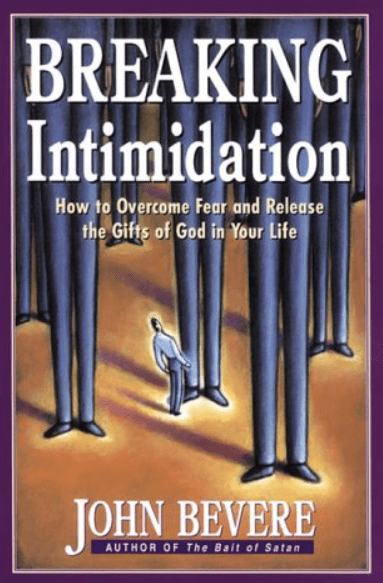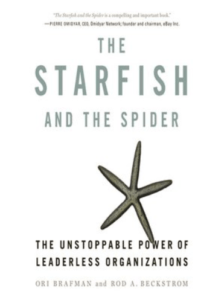Jacob is one of my favorite characters in the Bible. He was a deceiver, a complainer at times, fearful, and often lacking faith; yet, God chose him to be a father of the faith, and, despite all his failures, his life ended well. Jacob should give us all hope that God can use even us for his purposes. We should be encouraged that God’s grace and mercy are sufficient to carry us through, no matter how unlikely a candidate we may be.
This teaching will examine a significant episode in Jacob’s life when he was returning to his father’s home after years of a sort of self-imposed exile. God earlier promised his mother, Rebecca, that Jacob would rule over his brother Esau.
But the children struggled together within her; and she said, "If it is so, why then am I this way?" So she went to inquire of the LORD. 23 The LORD said to her, "Two nations are in your womb; And two peoples will be separated from your body; And one people shall be stronger than the other; And the older shall serve the younger." Genesis 25:22-23 (NASB)
How he came into possession of that promise involves several unexpected twists and turns. Jacob came out of the womb as the second born of twins, grasping the heel of his older brother, Esau. Jacob’s name is a word play on “heel” and carried with it the connotation of a deceiver, a theme that played out during his life.
The reason that Jacob left his father’s home was because he had tricked his father into giving him his older brother’s blessing, which enraged Esau to the point of wanting to murder him. His father, Isaac, was essentially blind due to old age, which allowed the deception to succeed. Isaac preferred Esau over Jacob, and, according to the convention of the time, Esau, being the first born, should have received a blessing giving him first place among his brothers. But God had already chosen Jacob to have that honor, which is another theme that plays out repeatedly in the Old Testament.
God chooses unlikely people to accomplish his purposes.
It is inconceivable that Rebecca did not tell her husband about the promise God gave her; nevertheless, Isaac, who also had a history of being deceptive, as did his father, Abraham, chose the give his blessing to his elder son. He sent Esau out to kill game and prepare him a delicious stew which would set the stage for his imparting the blessing of the first born. Rebecca heard what was happening and instructed Jacob to bring her a goat to prepare for his father. Following his mother’s counsel, Jacob dressed in Esau’s clothing and somehow managed to pull off the ruse and get his father’s blessing just before Esau’s return. Below is a part of that blessing.
May many nations become your servants, and may they bow down to you. May you be the master over your brothers, and may your mother’s sons bow down to you. All who curse you will be cursed, and all who bless you will be blessed.” Genesis 27:29 (NLT)
Previously Esau had traded his birthright to Jacob for a bowl of lentil stew.
One day when Jacob was cooking some stew, Esau arrived home from the wilderness exhausted and hungry. 30 Esau said to Jacob, “I’m starved! Give me some of that red stew!” (This is how Esau got his other name, Edom, which means “red.”) 31 “All right,” Jacob replied, “but trade me your rights as the firstborn son.” 32 “Look, I’m dying of starvation!” said Esau. “What good is my birthright to me now?” 33 But Jacob said, “First you must swear that your birthright is mine.” So Esau swore an oath, thereby selling all his rights as the firstborn to his brother, Jacob. 34 Then Jacob gave Esau some bread and lentil stew. Esau ate the meal, then got up and left. He showed contempt for his rights as the firstborn. Genesis 25:29-34 (NLT)
The birthright being Jacob’s by Esau’s choice, it only stood to reason that the blessing should also be his. However, when Esau learned that once again his brother had taken what he felt belonged to him, he was distraught and furious. He determined to kill Jacob after his father died. Upon learning this, Rebecca instructed her son, with Isaac’s blessing, to leave the country and go back to her father’s house to obtain a bride. Jacob left immediately, encountering God along the way, and after reaching Rebecca’s home, ended up marrying two of Rebecca’s nieces, Leah and Rachel. There he built his family and fortune serving his uncle Laban. Eventually God instructed him to return to his father’s home.
Then the LORD said to Jacob, “Return to the land of your father and grandfather and to your relatives there, and I will be with you.” Genesis 31:3 (NLT)
This posed two huge problems for Jacob. Laban was sure to oppose the move, and the last time he saw Esau, he had murder in his heart. This brings us to another life lesson we can derive from this part of Jacob’s life.
When God tells us to do something, he promises to be with us, but that does not mean we will not encounter difficulties.
Jacob tried to escape Laban secretly to avoid a fight, but Laban hunted him down. The ensuing confrontation revealed to Jacob that God was helping him.
Laban caught up with Jacob as he was camped in the hill country of Gilead, and he set up his camp not far from Jacob’s. 26 “What do you mean by stealing away like this?” Laban demanded. “How dare you drag my daughters away like prisoners of war? 27 Why did you slip away secretly? Why did you steal away? And why didn’t you say you wanted to leave? I would have given you a farewell feast, with singing and music, accompanied by tambourines and harps. 28 Why didn’t you let me kiss my daughters and grandchildren and tell them good-bye? You have acted very foolishly! 29 I could destroy you, but the God of your father appeared to me last night and warned me, ‘Leave Jacob alone!’ Genesis 31:25-29 (NLT)
Once past this significant hurdle, Jacob still faced his biggest fear – Esau. As he approached his father’s home, he got word that Esau was coming to meet him with four hundred men. How would you interpret this news? Probably just as Jacob did… He was convinced that his brother was coming to finally get his revenge. Jacob was caught between a rock and a hard place. God clearly told him to return home, but Esau had to be met for that to happen.
God is an expert at setting up situations that require us to face our fears.
He backs us into a corner from which we cannot escape except by going straight forward. Meeting Esau seemed to be the worst thing that could happen, but God was about to turn what Jacob feared into something good.
This brings us to another important life lesson. God promises that he will work all things out for good in our lives, even the seemingly terrible things. He asks us to maintain our faith in him and his promises.
And we know that God causes everything to work together for the good of those who love God and are called according to his purpose for them. Romans 8:28 (NLT)
A secondary principle that we can derive from this verse of scripture is that we should praise God in every circumstance because we can be sure that he is at work for our good and his glory.
And give thanks for everything to God the Father in the name of our Lord Jesus Christ. Ephesians 5:20 (NLT)
Jacob did not yet know these principles. All he knew was that God was with him and his brother appeared to be on the warpath. As the confrontation got closer, Jacob took defensive steps, sending droves of animals ahead of him as gifts to appease his brother’s wrath. The night before meeting Esau, he divided his family group in the hope that perhaps some would be spared. Then he spent the night alone by the river Jabbok.
During that sleepless night, the angel of the Lord appeared to Jacob and wrestled with him. Jacob was a powerful man, having been able to single-handedly role a huge stone that covered the opening to a well. (Genesis 29:10) Despite his prodigious strength, Jacob was unable to defeat the angel, which is not surprising. God will defeat the areas of our lives where we are self-sufficient so that we learn an important lesson.
God never intended that we be self-sufficient. We were created to draw our life and strength from God.
Until we learn to bring everything under God’s benevolent rule, we will encounter God’s loving discipline. Jacob was about to learn the biggest life lesson of all.
Even in the womb, Jacob struggled with his brother; when he became a man, he even fought with God. 4 Yes, he wrestled with the angel and won. He wept and pleaded for a blessing from him. There at Bethel he met God face to face, and God spoke to him— 5 the LORD God of Heaven’s Armies, the LORD is his name! Hosea 12:3-5 (NLT)
According to the Bible, Jacob won his wrestling match, but that is a surprising twist to the story. His victory with God came because he lost to God. This is another key to life in God.
We win by losing our fight against God.
Jacob and the angel wrestled to a stalemate, at which time, the angel revealed that he had the power to defeat Jacob at any time. Imagine a father arm wrestling with his young son and pretending that it is a struggle.
This left Jacob all alone in the camp, and a man came and wrestled with him until the dawn began to break. 25 When the man saw that he would not win the match, he touched Jacob’s hip and wrenched it out of its socket. 26 Then the man said, “Let me go, for the dawn is breaking!” But Jacob said, “I will not let you go unless you bless me.” 27 “What is your name?” the man asked. He replied, “Jacob.” 28 “Your name will no longer be Jacob,” the man told him. “From now on you will be called Israel, because you have fought with God and with men and have won.” Genesis 32:24-28 (NLT)
Jacob won this match with God because he refused to give up and let go, which brings us to the main point of this article.
Never let go of God and his promises until you get the blessing.
Life often confronts us with overwhelming problems that seemingly contradict or nullify God’s love and promises. The test we often face is whether we will let go of God or cling to him. Instead of fighting God, as Jacob did, why not simply surrender to His plan and purpose?
The cross has been called the intersection or crossing of our will by God’s. The cross symbolizes the death of our will and our desire to determine our own course or direction in life. God’s will is usually attractive to us on a deep spiritual level, but the journey toward its fulfillment usually runs counter to the comfort and ease we all want.
We inevitably will encounter the cross when we embrace God’s divine purpose. We may struggle fiercely, but we cannot win against God. So why not be wise and surrender early on?
Jacob surrendered with one condition, which we should also adopt: he requested God’s blessing.
Then the man said, “Let me go, for the dawn is breaking.”
“I will not let you go,” Jacob replied, “unless you bless me.” Genesis 32:26
As we face the trial before us, we should tell God that we surrender to His will and purpose for our lives in the trial (as best we can) and that we want the blessing contained in it. (Romans 8:28) The old saying that every dark cloud has a silver lining is certainly true with God.
There is nothing that the devil or life can throw at us that will not ultimately work for our good. Therefore, we can face everything with the bold confidence of a conqueror. In Christ the battle has already been won.
No, despite all these things, overwhelming victory is ours through Christ, who loved us. 38 And I am convinced that nothing can ever separate us from God’s love. Neither death nor life, neither angels nor demons, neither our fears for today nor our worries about tomorrow—not even the powers of hell can separate us from God’s love. 39 No power in the sky above or in the earth below—indeed, nothing in all creation will ever be able to separate us from the love of God that is revealed in Christ Jesus our Lord. Romans 8:37-39 (NLT)
Adversity presents us with an opportunity to know God in a fresh new way.
Of course, for the Christian, the Lord is always present, but often we neglect to profit from this most amazing gift until pressed into a corner. We humans are so oriented toward self-sufficiency that we often forget about God, for all practical purposes, until we are faced with something so beyond our capacity to cope that we are forced to run to Him. God is so loving and humble of heart that He accepts us even when we come with such questionable motives.
Then Jesus said, “Come to me, all of you who are weary and carry heavy burdens, and I will give you rest. 29 Take my yoke upon you. Let me teach you, because I am humble and gentle at heart, and you will find rest for your souls. 30 For my yoke is easy to bear, and the burden I give you is light.” Matthew 11:28-30 (NLT)
God has no illusions about our motives, but loves us anyway. He is a true friend as well as our God.
In addition to being an opportunity to meet God in a fresh new way, a severe trial is also an opportunity to hear God’s voice in a way that inspires our faith. God can and will speak to us through Scripture, other human beings, our circumstances, or simply by communicating directly with our hearts.
“Keep on asking, and you will receive what you ask for. Keep on seeking, and you will find. Keep on knocking, and the door will be opened to you. 8 For everyone who asks, receives. Everyone who seeks, finds. And to everyone who knocks, the door will be opened. Matthew 7:7-8 (NLT)
When God requires that we face our greatest fears, it is time to get alone with Him and hang on until He gives us the blessing that is hidden in the trial. Never doubt that it is there. It was for Jacob. When he finally face his brother Esau the next day, it turned out well. Esau came in peace, eliciting these words from Jacob.
Jacob said, “Please. If you can find it in your heart to welcome me, accept these gifts. When I saw your face, it was as the face of God smiling on me. Genesis 33:10 (The Message)
Knowing that God truly loves us is a big key to our having overcoming faith.
Some believers have a feeling that God “loves” them, but fear that He secretly does not like them very much. We have a good reason to think this way, since we are so very well acquainted with our own faults and failings. Many of us still think we are on a performance basis in our relationship with God, and we imagine we are quite unworthy of genuine affection from Him.
The good news of the gospel, however, is that God loves us to the core, despite our very unlovable traits, and that He is favorably disposed to bless us, all because of what Jesus did for us.
When we love someone deeply, it gives us pleasure to show that love through gifts and other favorable acts. That is the way God loves us.
When a severe trial comes, for some it is a confirmation that God’s displeasure has been aroused and they are being punished. It is very difficult, if not impossible, to have overcoming faith if we think like that. Perhaps the word “trial” is part of the problem, since it brings to mind a courtroom setting in which we may see ourselves as the accused. If we substitute the word “test” for “trial,” we may obtain a better grasp of what God is doing.
Tests reveal to us what we know and how far we have come in our training and maturity.
They are meant to be passed, but, if we fail one, God does not discard us. Instead we must go back to the Book, the Bible, to study some more and then go back to God, our life coach, for some more internal work. Tests are good, not bad. God is not hurting us by sending tribulation and pressures our way: He is actually helping us. The Apostle Paul wrote:
That is why we never give up. Though our bodies are dying, our spirits are being renewed every day. 17 For our present troubles are small and won’t last very long. Yet they produce for us a glory that vastly outweighs them and will last forever! 18 So we don’t look at the troubles we can see now; rather, we fix our gaze on things that cannot be seen. For the things we see now will soon be gone, but the things we cannot see will last forever. 2 Corinthians 4:16-18 (NLT)
We cannot grow spiritually without encountering tests and pressures along the way. God wants us to use them to learn how to overcome by faith.
It’s analogous to a butterfly struggling to escape its cocoon. If someone tries to “help” the insect by tearing open the cocoon, the butterfly will be robbed of its God-given opportunity to strengthen and develop its wings. It is through the struggle to get out of the cocoon that the butterfly becomes strong enough to fly. As we encounter and struggle with tests and tribulations, our faith and ability to persevere will grow.
Dear brothers and sisters, when troubles come your way, consider it an opportunity for great joy. 3 For you know that when your faith is tested, your endurance has a chance to grow. 4 So let it grow, for when your endurance is fully developed, you will be perfect and complete, needing nothing. James 1:2-4 (NLT)
In adversity, we learn that God is faithful and true and grow strong spiritually. Most of us routinely seek to avoid or quickly escape tribulations. Rather, we should embrace any that God sends our way and seek to profit from them.
God has a purpose for everything in our lives. We just need to find it, which happens more easily when we surrender to God’s will and purpose. Our purpose is found in His purposes. In fact, it is only in the context of His sovereign will that our lives make sense. What before had been terrifying for Jacob, now became the venue in which he beheld God’s smile.
When we go through trials and tribulations with an attitude of faith and an expectation of blessing, we will come to know God in a new way and be able to see His smile.
Do we know that God is smiling at us, or do we imagine that His face is clouded, angry, or frowning in displeasure? The priestly blessing from Numbers reveals that God is indeed smiling at us, or, as the literal Hebrew says, “shining” upon us.
May the LORD bless you and protect you. 25 May the LORD smile on you and be gracious to you. 26 May the LORD show you his favor and give you his peace.’ Numbers 6:24-26 (NLT)
A smile is one of the most effective ways to communicate our pleasure in another person. God takes pleasure in His people because we are perfectly pleasing to Him in and through His Son. We are completely justified, accepted, and blessed in Christ.
All praise to God, the Father of our Lord Jesus Christ, who has blessed us with every spiritual blessing in the heavenly realms because we are united with Christ. 4 Even before he made the world, God loved us and chose us in Christ to be holy and without fault in his eyes. 5 God decided in advance to adopt us into his own family by bringing us to himself through Jesus Christ. This is what he wanted to do, and it gave him great pleasure. 6 So we praise God for the glorious grace he has poured out on us who belong to his dear Son. 7 He is so rich in kindness and grace that he purchased our freedom with the blood of his Son and forgave our sins. 8 He has showered his kindness on us, along with all wisdom and understanding. Ephesians 1:3-8 (NLT)
Yes, God is smiling at us, but do we believe it yet? Keep seeking the Lord until he shows you the truth about his amazing grace.
Don’t let go of God until you experience the blessing he has already given to us in Christ.
 prone to distrust the truth and believe lies. Thanks to the presence of evil in the world, deception is ubiquitous and relentless. Over the course of a lifetime, without continual repentance, all sorts of wrong thinking can begin to accumulate. Sometimes seemingly impregnable fortresses of deception are erected in our lives as a result of painful experiences and wrong interpretations or reactions to those experiences. The net result is a mind that resists God and rejects truth. Paul describes it in Romans as a deliberate suppression of truth.
prone to distrust the truth and believe lies. Thanks to the presence of evil in the world, deception is ubiquitous and relentless. Over the course of a lifetime, without continual repentance, all sorts of wrong thinking can begin to accumulate. Sometimes seemingly impregnable fortresses of deception are erected in our lives as a result of painful experiences and wrong interpretations or reactions to those experiences. The net result is a mind that resists God and rejects truth. Paul describes it in Romans as a deliberate suppression of truth.







